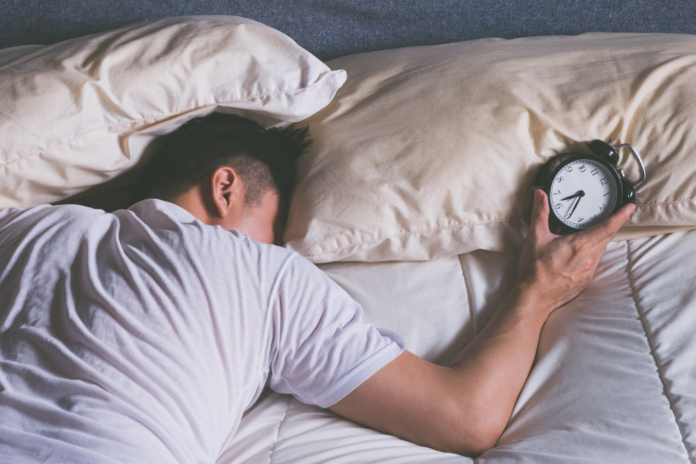Almost one-third of American adults do not get the required seven hours per night. Many people have difficulty falling or staying asleep or suffer from sleep disorders such as sleep apnea, restless leg syndrome, or insomnia. This is concerning because you may be sacrificing a lot when you don’t get enough sleep. Sleep deprivation can have a significant impact on your health and your mood and ability to perform on the job or at school.
Sleep is essential for your health since your body creates hormones such as growth hormones when you sleep.
This hormone aids in children’s growth and the healing of cells and tissues in both children and adults. A good night’s sleep also helps the immune system defend against infections, which may explain why having enough sleep keeps you healthy and allows you to recover if you fall ill.
The good news is that you may promote better sleep by developing a positive nighttime ritual and practicing good sleep hygiene. There is a lot of advice on what to do before bed to obtain a good night’s sleep, but it’s also crucial to know what not to do. Although proper sleep hygiene varies depending on age, gender, and health state, most people can benefit from avoiding the sleep disruptors listed below.
Say no to caffeine and Tobacco contained food
Avoid drinking stimulants such as coffee, tea, energy or soft drinks, and chocolate before night to practice good sleep hygiene. Even moderate doses of caffeine have been proven in studies to impair sleep. To avoid caffeine interfering with your sleep, have your last caffeinated beverage or snack at least six hours before bedtime. If you are caffeine sensitive, it is best to consume your last caffeinated drink 12 hours before night.
Here are a few standard caffeinated drinks and their caffeine content:
- 12 oz. caffeine-laced soft drink: 30-40 milligrams
- 30–50 milligrams per 8-ounce serving of green or black tea
- Eight ounces of coffee have 80 to 100 mg of caffeine.
- Eight oz. of an energy drink: 40 to 250 milligrams
Similarly, the nicotine from tobacco can interfere with your sleep. Nicotine in tobacco products such as cigarettes, cigars, chewing tobacco, and vape liquid has been proven in studies to promote difficulty falling asleep and increase the risk of fragmented sleep, leading to daytime sleepiness. Furthermore, smoking is linked to an increased prevalence of sleep-related respiratory diseases, affecting sleep quality and daytime drowsiness.
To achieve a better night’s sleep, avoid or limit your use of tobacco products before bedtime.
Avoid Evening activities such as Exercise
Regular exercise is routinely advised to promote better sleep because it has been found to improve both sleep quality and duration. However, the timing of your workout is critical. Avoid exercising right before going to bed. Overtraining or exercising fewer than three hours before bedtime might induce insomnia in some people.
Instead, attempt a basic stretching or moderate yoga exercise before bedtime, as regular yoga practice has improved sleep quality and reduced insomnia.
Limited digital usage like cell phone, Laptop
It may be tempting to check your text messages, read through social media accounts, watch movies, or attend virtual happy hours at the end of the day, but these activities may be damaging your sleep. Cellphones, tablets, and laptop computers emit blue wavelength light, which has been shown to disturb sleep when used before night. This light may interfere with sleep by decreasing melatonin, a hormone that regulates sleep and might lead to feeling awake at night.
Avoid alcohol beverages
A nightcap before bedtime may be relaxing for some people. However, studies have shown that while alcohol may initially help sleep, it can reduce REM sleep, a vital component of a good night’s sleep. Drinking alcohol later in the evening has also been linked to reduced levels of the sleep-regulating hormone melatonin and morning headaches caused by sleep disruption.
Avoid Sleep-Disrupting Medications
Certain drugs can disrupt sleep by increasing heart rate or blood pressure, which can harm sleep. As a result, it is critical to understand when to take medications to avoid sleep disruptions as much as possible.
Additionally, some patients claim that common drugs such as decongestants or pseudoephedrine induce sleeping issues. As a result of taking pseudoephedrine, some people may have restless legs syndrome, a disorder that frequently interferes with a person’s ability to fall asleep. Pseudoephedrine can be present in cold and allergy drugs such as Sudafed.
You may be wondering if Sudafed keeps you awake. You might wish to try a nocturnal version if you take these medications, like Sudafed Nighttime. However, other studies have found that pseudoephedrine has no harmful impact on sleep quality.
Check the accompanying patient information or contact your doctor or pharmacist to determine if a medicine you’re taking can interfere with your sleep.
Avoid eating late snacks and meals
Due to hectic schedules and long days, eating a late dinner or munching on comfort foods in the evening may be necessary. Be mindful that these late-night nibbles can disrupt your sleep. Eating later in the evening might alter your circadian clock and worsen the symptoms of sleep disorders like obstructive sleep apnea. Avoid eating close before night to help maintain adequate slumber.
Also, try not to overeat around dinnertime, as heavier meals might cause indigestion and disrupt sleep. Too much fluid consumption can also cause you to wake up with the urge to urinate. Although further research is needed, many individuals feel that a pre-bedtime snack can cause nightmares, yet another reason to avoid eating right before bed.
You may want to follow a sleep-friendly diet that emphasizes the following foods to help support improved sleep hygiene:
- Fruits and vegetables that are fresh
- Complete grains
- Poultry, meat, eggs, and dairy products (these foods contain B vitamins that may help to regulate melatonin)
Conclusion
By avoiding these frequent sleep disruptors, you may be able to sleep better. You can also supplement your sleep by taking brief naps during the day or taking melatonin tablets, which assist regulate circadian cycles. Keeping track of your sleep hygiene and developing a good bedtime routine are necessary steps toward improved sleep.
However, if your sleep quality does not improve, you may need additional steps. If you suspect a sleep disturbance, see your doctor or an online healthcare consultation right away.
Engaging in some calming activities before bed will significantly assist you in falling asleep. It’s worthwhile to spend some time relaxing so that sleep comes more readily at the end of the day. Getting a good night’s sleep is one of the most significant ways to ensure that you are ready for each new day, so experiment with these ideas and find which ones work best.














